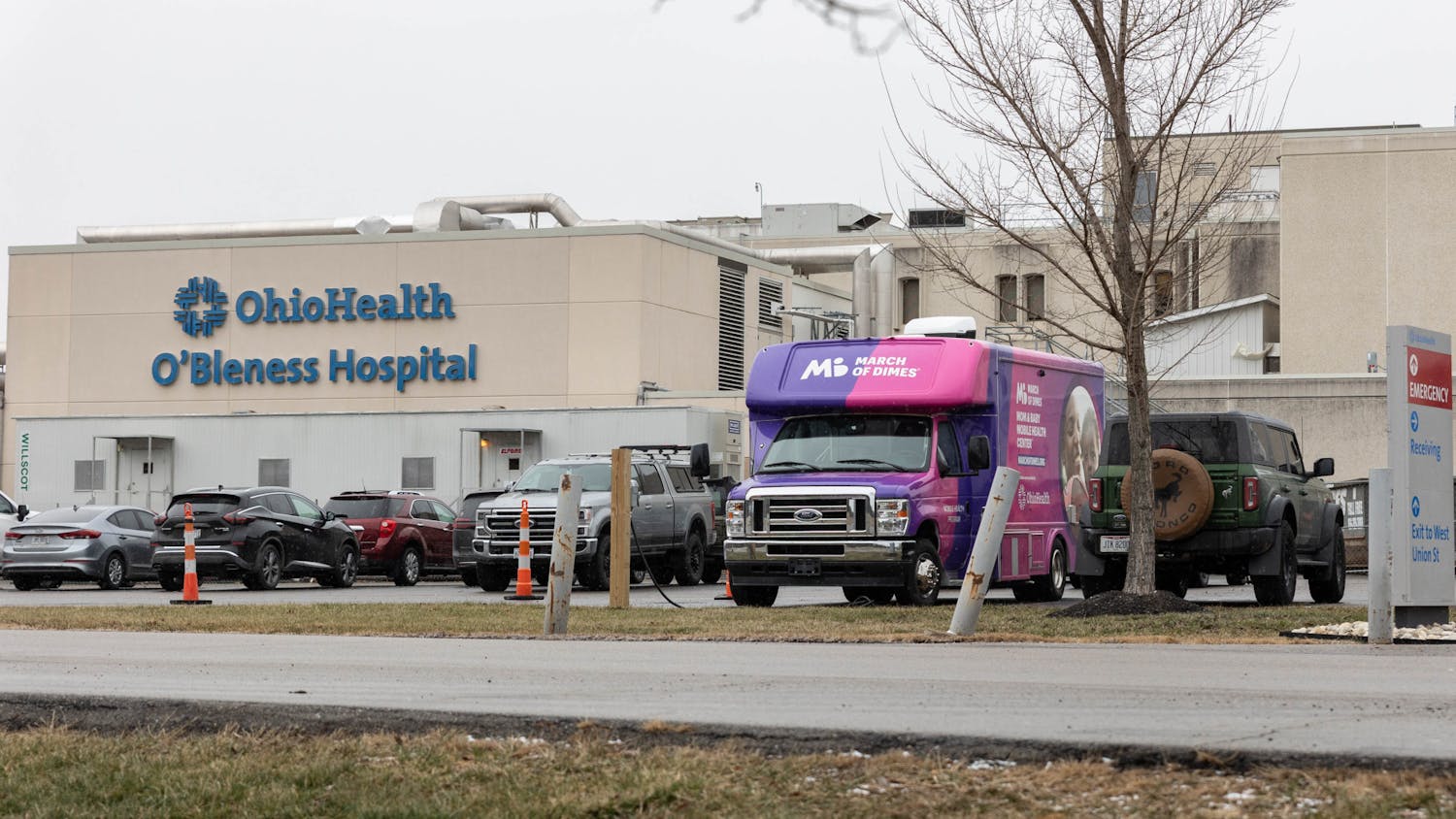In a series last year, The Post looked at President Roderick McDavis' promises he made at the beginning of his tenure and how many of those were accomplished.
In Ohio University President Roderick McDavis’ inaugural speech in 2004, McDavis outlined a number of goals he had for the university he was tasked at leading. The Post checked in on those goals last year after a decade with McDavis at the helm of OU. The series, dubbed “Reviewing Rod,” revealed some of the university’s successes — increasing diversity — and some of its failed goals, such as having 100 new Urban Scholars each year.
How Ohio University has fallen in U.S. News rankings since McDavis became president
One of McDavis’ goals when starting at OU was for the university to “become a nationally prominent research university.”
In McDavis’ first decade at OU, the university dropped more than 30 spots in U.S. News and World Report’s Best Colleges rankings from 98 in 2005 to 129 in 2015.
OU's diversity widens as Urban Scholars program
In his inaugural speech, McDavis told the crowd that the Urban Scholars program, which he has poured thousands of his own dollars into, would be his “first step” toward increasing diversity at OU. He aimed to have 100 new scholars each year.
Last academic year, there were four total Urban Scholars at OU.
McDavis reaches out to regional counterparts
The president’s first goal for OU was to strengthen the university’s partnerships in the region and throughout the country.
In 2012, McDavis signed a Memorandum of Understanding with Athens’ mayor. The university also expanded its relationships with community colleges during his time at OU.
McDavis' $100 million pledge for research unmet
Ohio University was ranked third in the state in terms of the money it could use for research and development when President Roderick McDavis took office. Last year, it ranked sixth in the state.
Despite the drop in rankings, OU has more research and development money than it did earlier in McDavis’ time at OU. In fact, that pool of money grew by 44 percent from 2004 to 2012.
Student training helps boost local health care
McDavis said in his 2004 inaugural address that he planned to work collaboratively with medical facilities in Southeast Ohio to strengthen local health care.
It has — depending on which ranking you analyze.
President McDavis pledged to improve local schools in 2004
McDavis pledged to actively improve public schools throughout Southeast Ohio.
More teacher candidates from OU are training in local public schools than when McDavis started, and Athens City Schools have seen an increase in student test results, according to the performance index annually distributed by the Ohio Department of Education, during McDavis’ tenure.
But the majority of Athens County schools still rank in the bottom half of the state’s public school districts.
More than $255 million received during McDavis' tenure
McDavis entered the presidency with a goal of bringing more money to OU, and he estimates he spent about 40 percent of the last seven years trying to do just that.
The Promise Lives Campaign was one of the main fundraising projects and surpassed its goal this academic year.
Some of the hundreds of millions of dollars OU has was in the pipeline before McDavis became president.
 Committed to OU
Committed to OU
McDavis has been called “the quintessential fundraiser,” according to an external assessment conducted of the president in 2012 and fundraising has been one of his main goals.
As of the last academic year, more than $500 million had been raised during McDavis’ decade-long tenure at OU. But much of that money — about a third — was not in hand. And that money may not be received for up to 15 years, said Pam Dailey, OU’s records management senior specialist.
The ‘external president’
Ohio University President Roderick McDavis calls himself an “external president,” meaning he often works away from Athens, and McDavis’ public schedule shows his self-assessment to be true.
In last year's series, a Post analysis showed that in a five-month span, McDavis had only spent a fifth of his publicly scheduled time directly with students.
McDavis, faculty have history of tension
During the early years of his presidency, negative faculty opinions of McDavis “were much louder,” Beth Quitslund, chair of Faculty Senate, said.
In 2007, about half of the faculty voted in a survey organized by the OU chapter of the American Association of University Professors. The results showed more than two-thirds of the participants expressed no confidence in the president and a poll of students that same year showed similar conclusions.
For a time, McDavis did not attend Faculty Senate meetings, though he does now.
McDavis’ schedule busy with meetings when in Athens
McDavis’ workdays start and end with meetings — though about a third of his appointments aren’t in Athens, according to a Post analysis of his public schedule from June through October 2014.
In fact, 40 of the more than 120 events on McDavis’ public calendar since June were not in Athens. At the time, those meetings had been in Columbus, for work with the Inter-University Council of Ohio, for example, in Washington for meetings with politicians and at some of OU’s regional campuses.
@ohitchcock
oh271711@ohio.edu







